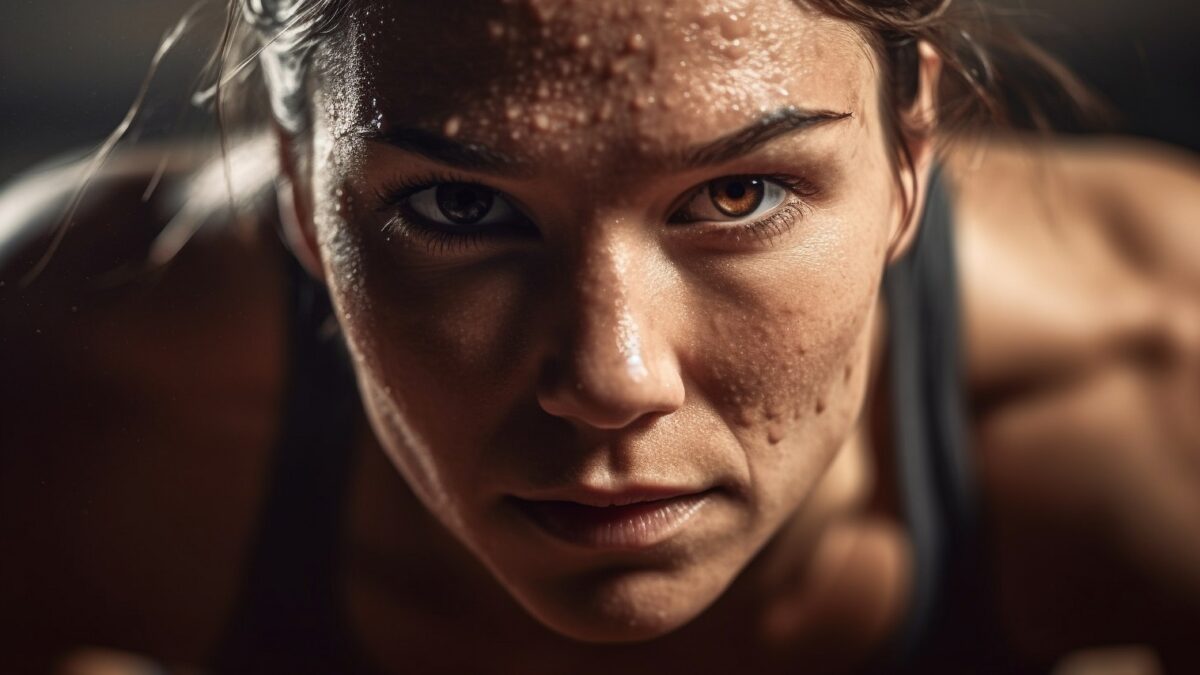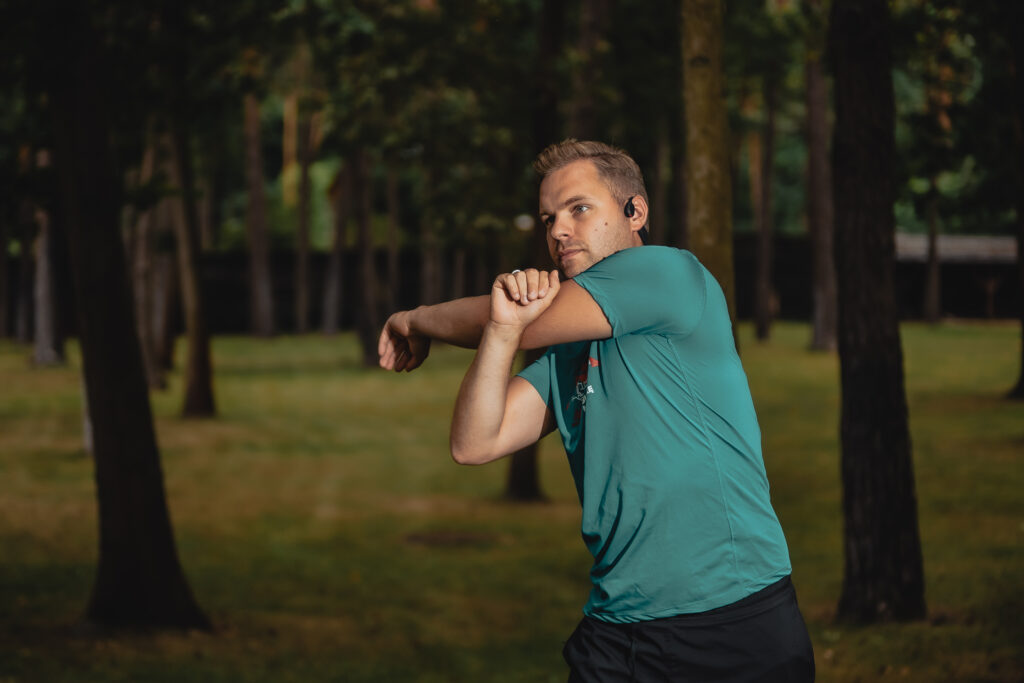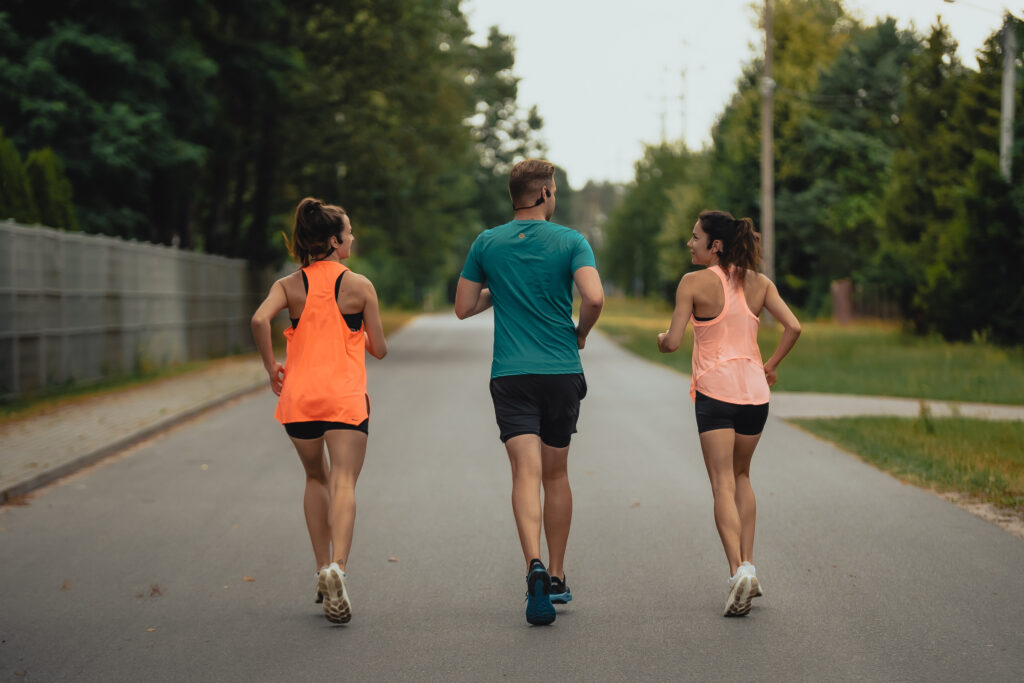Why do I sweat so much when I run? How to deal with sweat?

Why do I sweat so much when I run? How to deal with sweat?
One of the inevitable elements of running training, as well as most physical activities, is sweat. We sweat no matter what season it is – even on the frostiest days, but that’s good because it is a very important function of our body. If this did not happen, our body would overheat and further activity would be impossible. So if you have ever wondered why you sweat, whether there are any benefits from it, or why others sweat more or less than you – the following text will dispel at least some of your questions and doubts.
Sweating is a natural process of our body that is controlled by the autonomic nervous system. However, the hypothalamus plays the greatest role in when and how much we sweat, as it plays a special role in regulating physiological processes in our body.
What is sweat and why do we sweat? How to deal with sweat?
Simply put, sweating is a natural process by which our body cools down. Sweat is released by glands on our skin and then evaporates into the air, providing a cooling effect on our skin and, therefore, the entire body. It is a kind of “ventilation system” of our body. However, it should be remembered that sweat, although in fact it consists of about 99% of water, contains a whole range of other important substances such as sodium, potassium, calcium, magnesium, iron, copper and zinc, which should be regularly supplemented to the body functioned properly.
We have two types of sweat glands:
- Acne – glands located all over the body (mainly concentrated on the palms, soles of the feet and forehead). Their main function is to thermoregulate the body, which is why they produce more watery sweat and become more active during physical exercise. They constitute approximately 75% of all sweat glands;
- Apocrynowe – sweat glands, which are located in areas with a large number of hair follicles, including: armpits, groin, scalp. They produce sweat that is thicker and more concentrated than the eccrine glands and are more active in stressful situations or when we are nervous.
Sweating can also be divided into two types: thermoregulatory sweatingwhich is designed to cool our body so that it does not overheat and emotional sweating, which is the body’s response to stress and similar emotional stimuli. In both of these cases, our body begins to heat up and the body must somehow react and defend itself. Therefore, our nervous system sends signals to the sweat glands, of which there are about 4 million on our skin (this number is different for each of us and according to some sources it may range from 1.6 to 5 million), to start naturally cool our body.

Why do I sweat more than others during training?
Many factors influence how intensely we sweat. It is worth noting here that our body sweats all day long, not only during physical activity. This continuous process is only visible to us when sweat production becomes greater than the evaporation rate.
On average, during an hour of training, we lose from 0.8 to 1.4 liters of fluids, but these values are different for each of us. There are even values that show that you can lose nearly 4 liters of sweat during an hour of exercise. This is influenced by factors such as:
- Genetics– an aspect that we have no influence on, i.e. genetic susceptibility to sweating. It is estimated that up to 3% of the population suffers from hyperhidrosis and in this case a doctor’s intervention will be necessary;
- Gender and body structure – men usually sweat more than women, which is due to the fact that men are larger, so their sweat glands have to work harder to cool a larger surface area of the skin. Sweating is influenced by our weight: the more fat tissue we have, the more energy we have to expend compared to our slimmer training companions to perform the same activity, which is why we have to cool our body more. To sum up, the bigger and heavier we are, the more we sweat;
- Consuming stimulants – caffeine and alcohol have a stimulating effect on us, including: they speed up the heart rate and increase body temperature. Smoking also affects the rate of sweating – or rather, its excess;
- Atmospheric conditions – this is one of the most obvious aspects. The warmer and humid it is, the more our body will defend itself against overheating, which is why it will try to cool us down intensively;
- Inappropriate attire – using inappropriate sports clothes may cause them to generate too much heat and block the thermoregulation process;
- Training status – this may come as a surprise to many, but physically fit people are more likely to sweat at the beginning of training than less fit people. This happens because through the habits we have developed, our body prepares to cool down by activating the sweat glands before it even gets hot. This way our body works more efficiently. At the same time, a less fit person is generally likely to sweat more than a fitter person because they have a higher energy expenditure and poorer physical condition, which results in a higher body temperature;
- Intensity of effort – the harder we train, the more energy we use to perform it.
Does sweating have any disadvantages?
Sweating is necessary for the cooling process of our body. It is sweat that prevents our body from overheating during training. Please remember that sweating is a natural phenomenon that occurs while running and we should not be ashamed of it, because it applies to all athletes. Moreover, as the previous paragraph shows: Sweating faster can be a sign of improved fitness.

However, there are less pleasant aspects related to sweating. Belong to them:
- Smell – it is worth remembering that sweat itself is odorless. The unpleasant odor is caused by bacteria on the surface of the skin, which mix with sweat as it breaks down. This mainly applies to sweat produced by the apocrine glands, as it tends to be slightly thicker and there is a higher number of skin bacteria in the armpits and groin due to the presence of hair follicles;
- Visual aspect – some outfits show signs of sweat more than others. However, it should not bother us during training and we should not be ashamed of it – it is a sign that we are working on our fitness;
- Loss of electrolytes – sweat consists mostly of water (about 99% of water), but it contains a whole range of other important substances such as sodium, potassium, calcium, magnesium, iron, copper, zinc, which need to be supplemented regularly for our body to function properly .
How to deal with sweating?
Once again, it is worth noting that sweat is a really important element of our training and is necessary to maintain the appropriate body temperature – you just have to accept it. However, you can make sweat while running less visible and bothersome. There are several ways you can try to reduce sweating while running or eliminate the side effects of sweating:
- Avoid caffeine, alcohol and smoking. Eating spicy foods also causes excessive sweating;
- Use an antiperspirant (the purpose of a deodorant is to mask unpleasant odors, while an antiperspirant is to stop sweating. The latter usually contain metals such as aluminum or zinc, which block pores from sweating);
- Choose appropriate running clothes. Special technical fabrics from which sportswear items are made help wick sweat away from the skin. Try to avoid natural fibers such as cotton. Additionally, match your outfit to the prevailing weather conditions;
- Stay hydrated during your workout and don’t start when you’re already dehydrated;
- Remove makeup before training or use special cosmetics for physical activity;
- After physical exercise, take a bath or shower as soon as possible;
- Avoid clothes that are too tight, as they may rub against the skin and cause additional irritation;
- Take spare clothes with you to change into after runs and races;
- Use sweat-absorbing equipment (e.g. a headband can prevent sweat from entering your eyes while running)
Do not under any circumstances listen to people who tell you to drink less water, as this may reduce the amount of sweating. Such tips may turn out to be really dangerous to our health. While running, you should ensure proper hydration, and sweating is crucial for maintaining the thermoregulation of our body.
